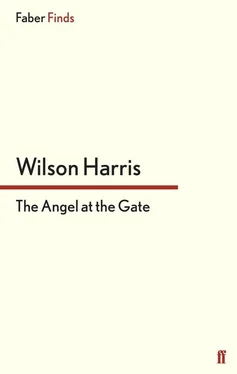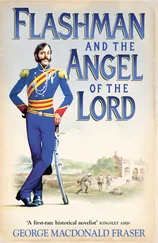It was one of those mornings when despite the tulips she was still oblivious of the radiant, yet curiously dense curtain of the sky, the fine pale silent music of a spring day. A blackbird was singing but the song fell upon her ears as if she were deaf. She arrived at the door and entered the house with her key, and stopped at the mirror just inside the hall. She replaced the key in a black, suede handbag. She was smartly dressed, pale-green coat that she began to shed to reveal a light-grey woollen dress and a necklace of jade.
Her eyes almost seemed to flash back at her in the slightly overshadowed, spiritual mirror and to heighten the beauty of her lips and skin: the opaque light of spring turned all at once into a standing pool in which she moved rooted in the floor, yet a vertical swimmer. The self-appraisal was so rapid that she hadn’t realized how absent from herself she had been. She came to the door of the study, still fluid, still detached, still cool. Father Marsden paid her well. The thought slid into her mind for no reason whatsoever to make her reflect almost without thinking on the progress she had made over the past years as his secretary, his patient, his friend, his companion on many a “hypnotic expedition”.
She placed her coat on a rack by the window close to her desk overlooking the garden. Irises were in bloom. W. B. Yeats’s A Vision lay on her desk and when Mary picked it up she found a scribbled note inside from Marsden asking her to type the pages he had underlined.
It was an American edition and the back cover carried a note of contents that Mary read with some astonishment.
“On the afternoon of 24 October 1917, four days after my marriage, my wife surprised me by attempting automatic writing. What came in disjointed sentences, in almost illegible writing, was so exciting, sometimes so profound, that I persuaded her to give an hour or so day after day to the unknown writer, and after some half dozen such hours offered to spend what remained of life explaining and piecing together those scattered sentences. No, was the answer, we have come to give you metaphors for poetry. ”
Yeats and his wife continued to pursue this extraordinary experience over the course of the next seven years, and Yeats recorded the results in 1925 in A Vision. Mrs Yeats’s efforts at automatic writing led to the conscious formulation of an elaborate system of actively related opposites, providing Yeats with something in which he could finally believe, something that left his “imagination free to create as it chose”.
The system of supernaturally revealed images of A Vision gave Yeats both a method by which he was able to categorize humanity and a method for dealing with history. (He) did find in these communications the metaphors for poetry he had been promised. Explaining as it does the sources and significances of such recurrent images and themes as the “anti-self”, “gyres” and the “phases of the moon” A Vision is…
Mary stopped, replaced the book on her desk, and sank into her chair. She had been standing by the window as she read and the light outside seemed as pooled now in the glass of the window — a passing yet strangely fixed shadow and abode of cloud — as in the mirror in the hall that had accompanied her into the study. It stood alongside her, that mirror, like an upright river or pool, a door into inimitable fluid spaces. It was a gratifying shock to discover that her relationship to Marsden possessed a treasury of potentials, that her pre-menstrual stresses were “phases of the moon” that held elaborate tones with which to dress both fire and flood and to secrete the majesty of the seasons in a minute cell, minute spark of infinite sensuous apparel. As for “anti-self” this she read as native to herself, her many antecedent selves; “gyres” was a term she had never encountered before and all she could make of it in her own “narratives” was emphasis on “reversible transference” and upon inanimate features, wheel, scissors, chariot, bale, shawl, line, ladder, etc. that awakened her to the hidden rhythms of her own unconscious.
It was as if Marsden had died and she would never see him again in Angel Inn except in the mirror that walked beside her and stood now in the room like a companion wreathed with faces, misty faces, Marsden’s beard into which Jackson’s tall hairstyle arose, Khublall’s shaven skull into which Marsden’s tall, knobbed stick arose, footballers punting on the green into which Marsden’s floating globe arose, dancers in Paradise Park playing scissors-and-chariot into which the magical child John arose with Josephine’s eyes in his head as if born as much from the South as from the North, as much from Marsden as from herself, perhaps more Marsden’s cross-cultural, religious seed than Sebastian’s physical penetration of Stella’s body on this side of the mirror of life.
In the depths of the mirror — on the other side of the mirror — lay marvels of funeral progression, yet re-birth residing in every deprived circumstance of being.
Mary recalled how deaf she had been to the voice of the blackbird that morning on her way to Angel Inn and yet it returned to her now in the depths of the mirror that stood beside her. Half-reflected voice, shaded sound, silent echo. Was this the source of musical composition? Did music issue from reflections that converted themselves into silent, echoing bodies in a mirror? Did the marriage of reflection and sound arise from deaf appearance within silent muse (or was it deaf muse in silent appearance) from which a stream of unheard music rippled into consciousness?
The voice of the bird in the mirror converted itself into the spirit of bird-like appearance as if one’s ears were partially unstopped, unsealed, at last, in order to listen to a sound that had no natural antecedent in bird or beast despite a resemblance to something one thought one remembered hearing in the interstices of obliviousness to everyday utterance. That paradox of deaf mirror filled with voices and faces was a cautionary note inserted into “animal divine” and “human divine” voices and it seemed unsurprising to Mary when Marsden appeared not in the room but in the mirror from the other side of life or death to say without utterance, “All voices that claim to be divine are to be distrusted. Remember that, sweet Mary. Nature’s crude therapy is the seal of deafness to reality, seal of blindness to reality, that it plants over our eyes and our ears to render us immune to the voices of temptation and mystery. When that seal lifts a little and one is, in consequence, exposed to great dangers within Angel Inn mirror into which one has stepped, one falls under the action of another protection, a protective grace. And even then what one begins to hear and to see needs to be accepted as partially arisen marvels of conception within still biased appearance, still biased voice, still biased sight, still biased sense, still biased nature.
“One steps into Angel Inn mirror to a rhythm that still embraces all our past, lapsed, vulnerable apprehensions, our states of being deaf, being blind. Within that embrace one learns that to match one’s step or state to past lapsed states is to see (through the blind eyes of others who still need that protection), to hear (through the deaf ears of others who still need that protection). That paradox is a mutual guard, it signifies that the sculpture of apparent death of the senses is itself a guard to save from unbearable processes of knowledge that could mean extinction if one came to them before one should. And this is reflected not only in science but in every ordeal of unequal state in which the gulf between majorities and minorities tests us to the core to find solutions by mutual effort, the blind protected by the seers (who imperil us all if they succumb to temptation), the ignorant by the wise (whose wisdom is itself a temptation), within world cultures that share the brunt, the tragedies, the humiliations, the burdens, that accumulate on the threshold of radical, human possibility….”
Читать дальше












